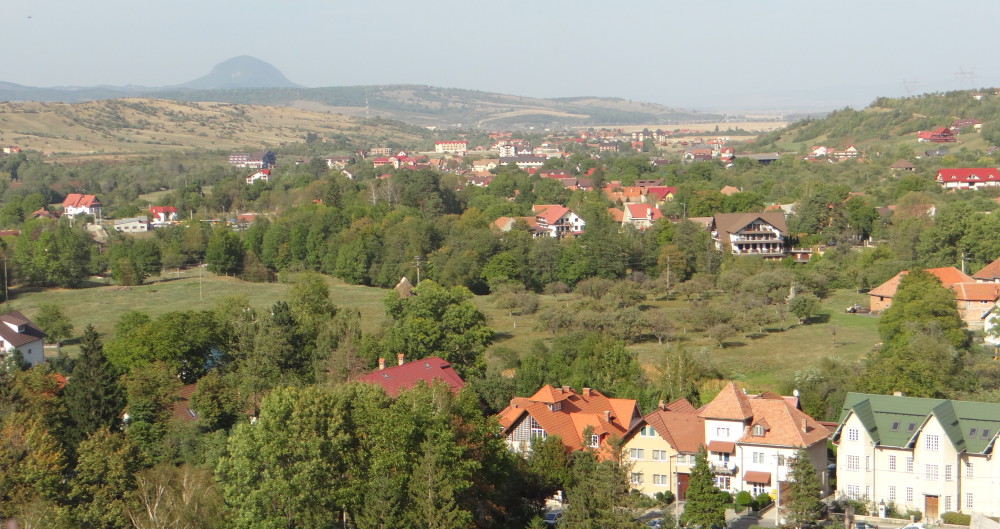The author of Lazarus Man, Chet Nagle, spoke to the Republican Women of Clifton on March 18, 2015 about “The cyber world and you, and how I learned to rob banks – with a computer.”
The cyber world is a daunting ether space inhabited by bytes, kilobytes , megabytes, terabytes, petabytes, exabytes, and zettabytes (ZB). Each measurement is larger than the previous one by increments of 1,000. It is so huge that one zettabyte can hold almost five quadrillion books of 200 pages each.
According to Nagle’s research, the Internet held 1.2 ZB in 2009, 2.8 ZB in 2012, and it is expected to grow to 40 ZB by 2020. Imagine 1.2 ZB as 75 billion fully loaded 16 GB iPads, stacked 339 miles into the sky.
Humans produce now in two days “more information than was created in all of history up until the year 2003.” Nagle said that “if you had bought the computing power found inside an iPhone 5s in 1991, it would have cost you $3.56 million. A TI-83 calculator’s computing power could have taken astronauts to the moon in 1969.”
In the seventies one computer occupied an entire building. Now a major international bank needs just five servers, each the size of an ordinary box.
The data is stored in computers, laptops, iPads, tablets, cell phones, external flash drives, servers in schools, businesses, companies, government, and servers in the “cloud.”
The Mother Ship is the NSA Cloud in Utah where water and electricity are plentiful, enabling its global Cloud to exist. They save not just Meta data, they store EVERYTHING of EVERYBODY around the world, citizens and governments. “If it’s on the Internet and it can be picked up with antennas, it’s there,” said Nagle. Even Hillary’s emails are there, he added, “now try to get them out.”
In addition to personal and banking information, addresses, social security numbers, 70 million medical records are stolen, a veritable cash trove of blackmail. If a database can be hacked, the hacker can engage not just in identity theft but also in identity change.
According to wired.com, an entire town in Romania owes its bustling economy to online hackers. “Râmnicu Vâlcea is a town whose business is cybercrime, and business is booming.” The town of 120,000 is known to the cyber world as Hackerville. http://www.wired.com/2011/01/ff_hackerville_romania/
The situation is so out of control that the U.S. Embassy and the U.S. Secret Service held a Cybercrime Seminar in Brasov on October 3, 2012, sponsored by American Express, EBay, Microsoft, Western Union, Trustwave, and MoneyGram International, the larger victims of cyber-criminal activity.
Cybernetics, the study of how humans and machines control and communicate information, has been around since 1948, and it is thought to derive from the Greek word “kybernētēs,” meaning pilot, governor (from kybernan to steer, govern).
The cyber world and its data are under attack from many fronts. There is hacking by those malcontents who want to get even with the perceived wrong-doers. There are criminal hackers who want your identity and want to profit financially from access to your information. There is the possibility of EMP attacks from an enemy force such as a country’s government or from natural disasters such as solar flares. Last but not least are cyberwars, nations being the biggest hackers. A case in point is China, which employs hundreds of thousands of young hackers. They placed malware in the New York Times servers as discovered in 2013. Russia used cyber-attack on Estonia in 2007 and “shut the country down, basically.” They used it in 2008 in Georgia. Ukraine and Russia are currently using cyber-attacks on each other on phones, military vehicles, radios, electronics, GPS systems, anything vulnerable, and anything is vulnerable today.
Malware is software with malicious content designed by young computer intellects. Kaspersky Labs see 325,000 new malware attacks daily. Stuxnet attacked the Iranian nuclear centrifuges, probably developed by U.S./Israel. Lizzard Stressor got into routers, using Wi-Fi to access data. Tyupkin in Eastern Europe inserted malware into ATMs. Dark Hotel inserted malware into business travelers’ cell phones, laptops, and tablets. Last but not least, Nagle mentioned Regin & Flame, U.S. cyber-attack programs.
The 228,700 cyber incidents recorded in 2013 more than doubled when compared with the 100,000 incidents recorded in 2009, said Chet Nagle. Today, Homeland Security reports half a million such incidents a day because the computing power has doubled every year and hackers have become more sophisticated.
The Internet is going to be controlled in this country via the innocuous-sounding net neutrality under the guise of “fairness.” It is already controlled in countries like Cuba, China, and North Korea and we know what that does to freedom of speech, thought, and the ability to write and publish.
Ted Cruz (R-Texas) called net neutrality “Obamcare for the Internet,” because the government will determine “internet pricing, terms of service, and the types of products and services that can be delivered, resulting in fewer choices, fewer opportunities, and higher prices for consumers.” John Boehner (R-Ohio) believes it will “destroy innovation and entrepreneurship.”
http://theweek.com/speedreads/441874/heres-conservative-case-against-net-neutrality
